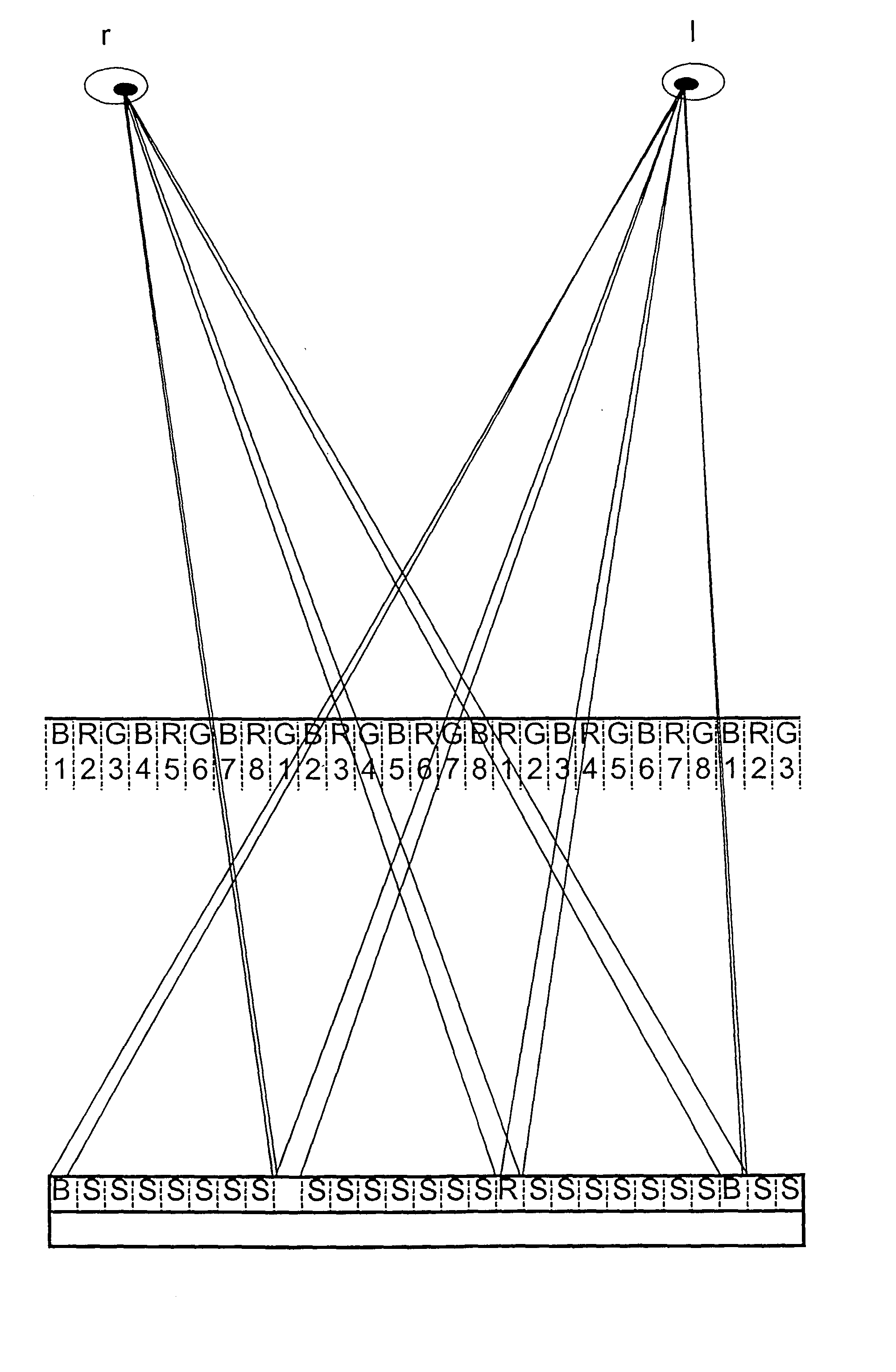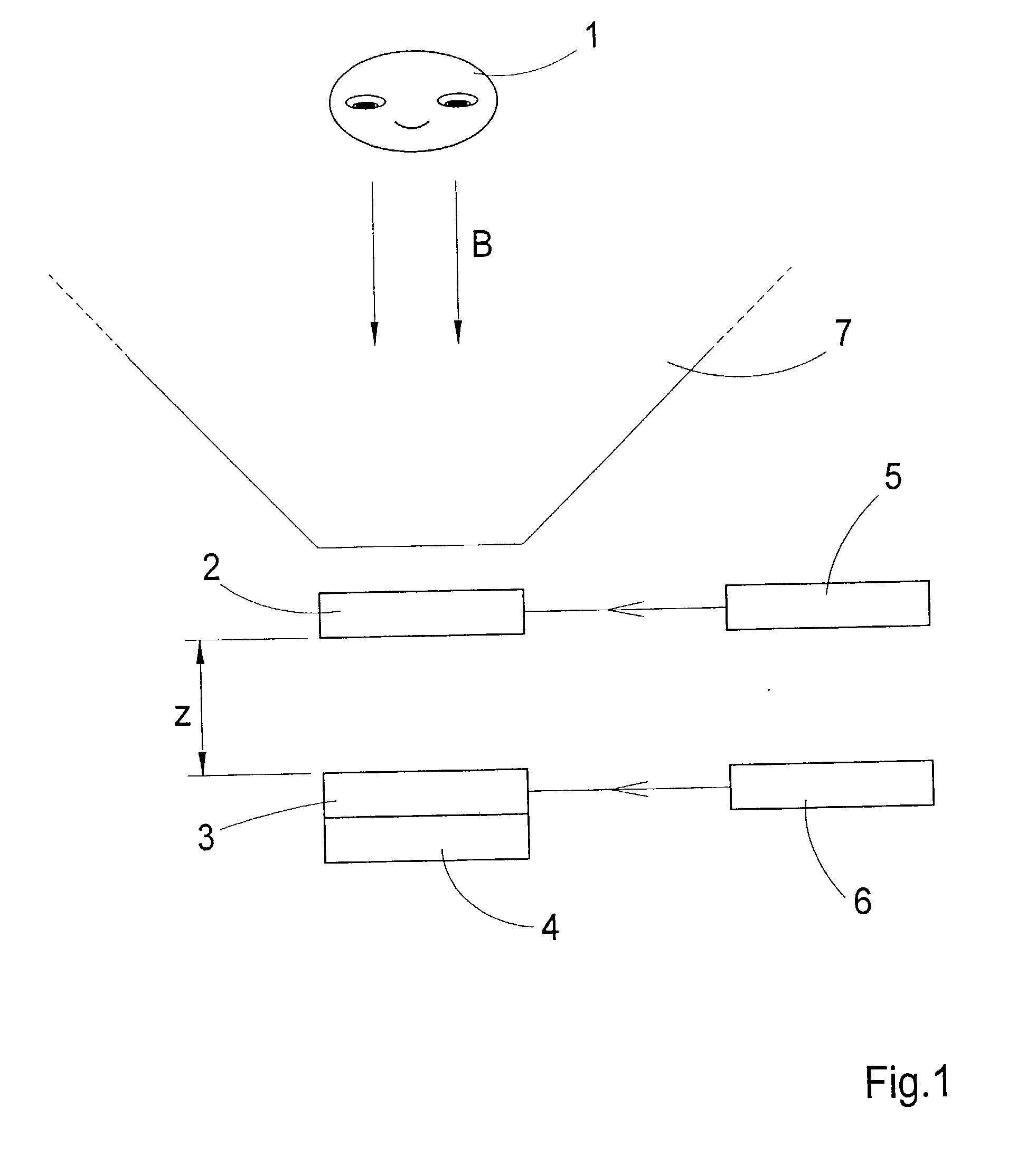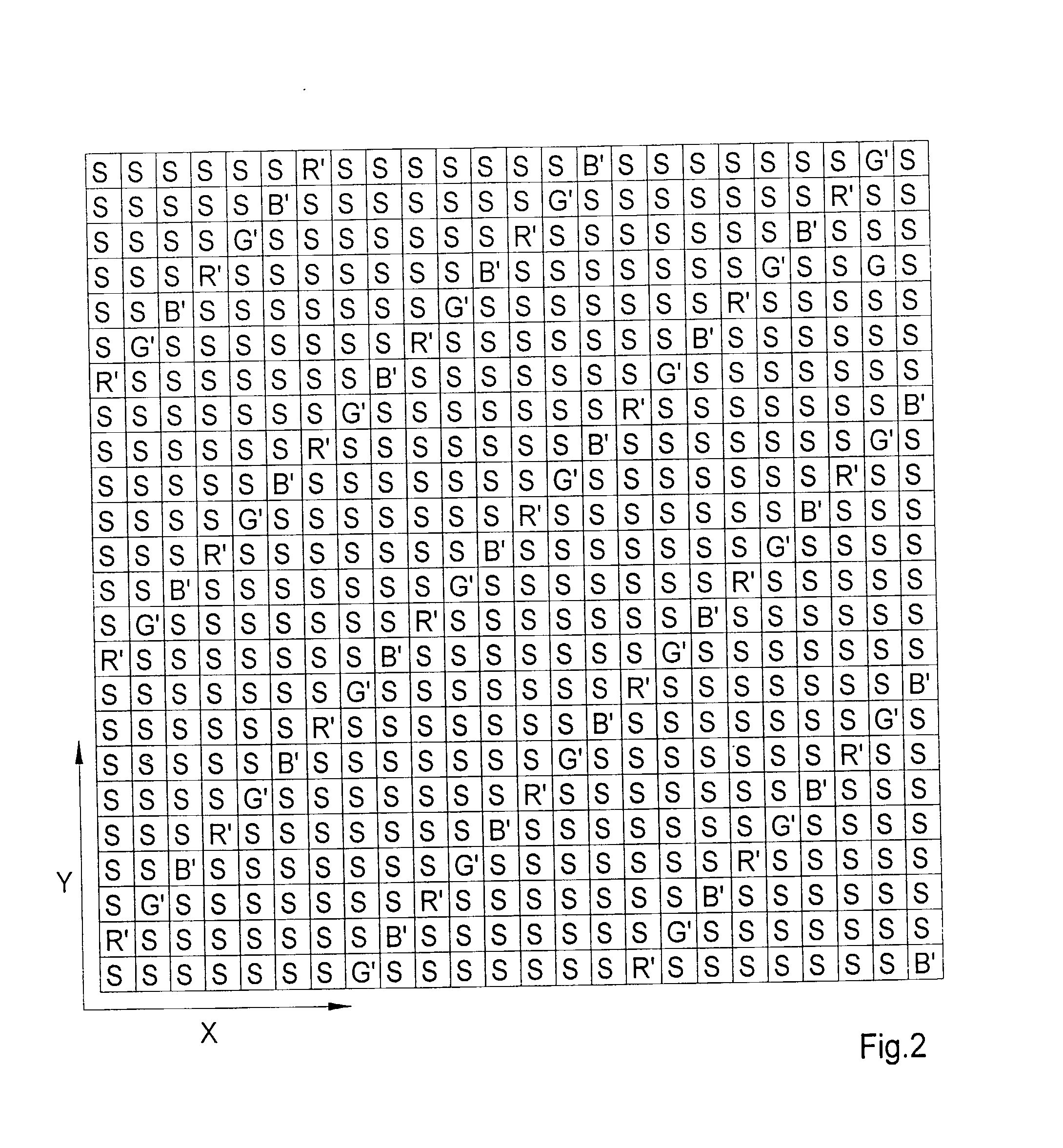Method and system for the three-dimensional representation
a three-dimensional representation and system technology, applied in the field of three-dimensional representation methods and systems, can solve the problems of changing the image quality, affecting the usability of the arrangement,
- Summary
- Abstract
- Description
- Claims
- Application Information
AI Technical Summary
Benefits of technology
Problems solved by technology
Method used
Image
Examples
Embodiment Construction
[0018] Proceeding from the prior art mentioned above, it is the object of the invention to achieve an autostereoscopic display for a plurality of observers simultaneously with a few, preferably commercially available, optical components while improving perceptibility.
[0019] According to the invention, in a method of the type described above, propagation directions are predetermined for the light radiated from the image elements .alpha..sub.ij, which propagation directions depend on the wavelength of this light, wherein the propagation directions within an observation space in which the observer or observers is or are situated intersect in a plurality of intersection points, each of which corresponds to an observation position. From each observation position, one eye of an observer perceives predominantly image elements .alpha..sub.ij of a first selection and the other eye perceives predominantly image elements .alpha..sub.ij of a second selection from views A.sub.k (k=l . . . n).
[00...
PUM
 Login to View More
Login to View More Abstract
Description
Claims
Application Information
 Login to View More
Login to View More - R&D
- Intellectual Property
- Life Sciences
- Materials
- Tech Scout
- Unparalleled Data Quality
- Higher Quality Content
- 60% Fewer Hallucinations
Browse by: Latest US Patents, China's latest patents, Technical Efficacy Thesaurus, Application Domain, Technology Topic, Popular Technical Reports.
© 2025 PatSnap. All rights reserved.Legal|Privacy policy|Modern Slavery Act Transparency Statement|Sitemap|About US| Contact US: help@patsnap.com



